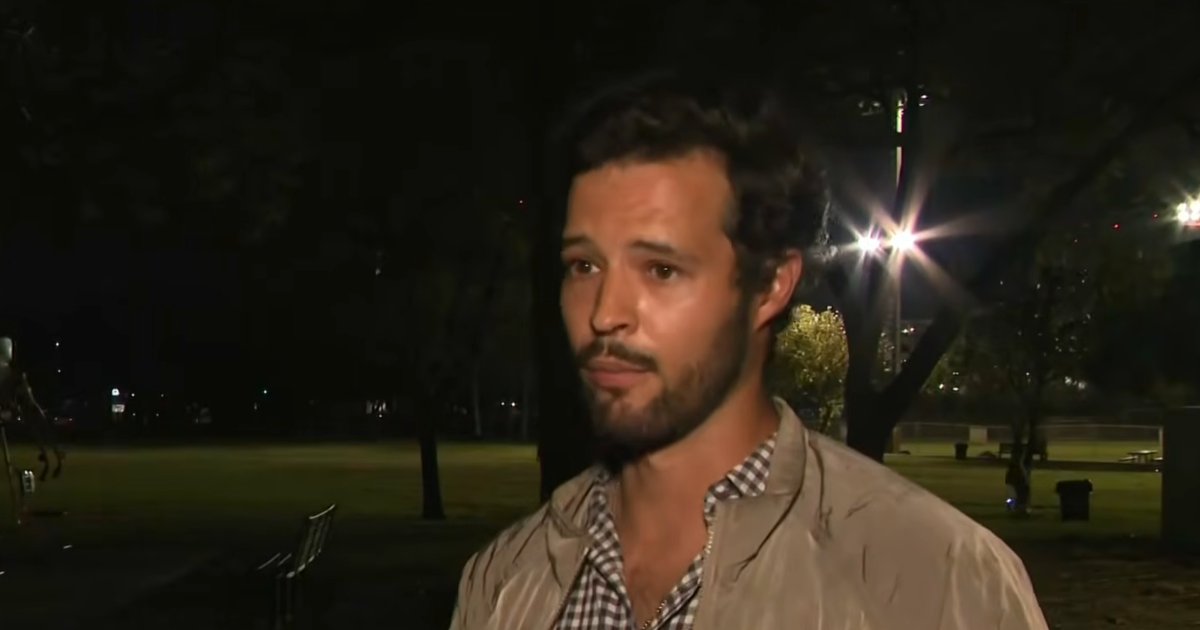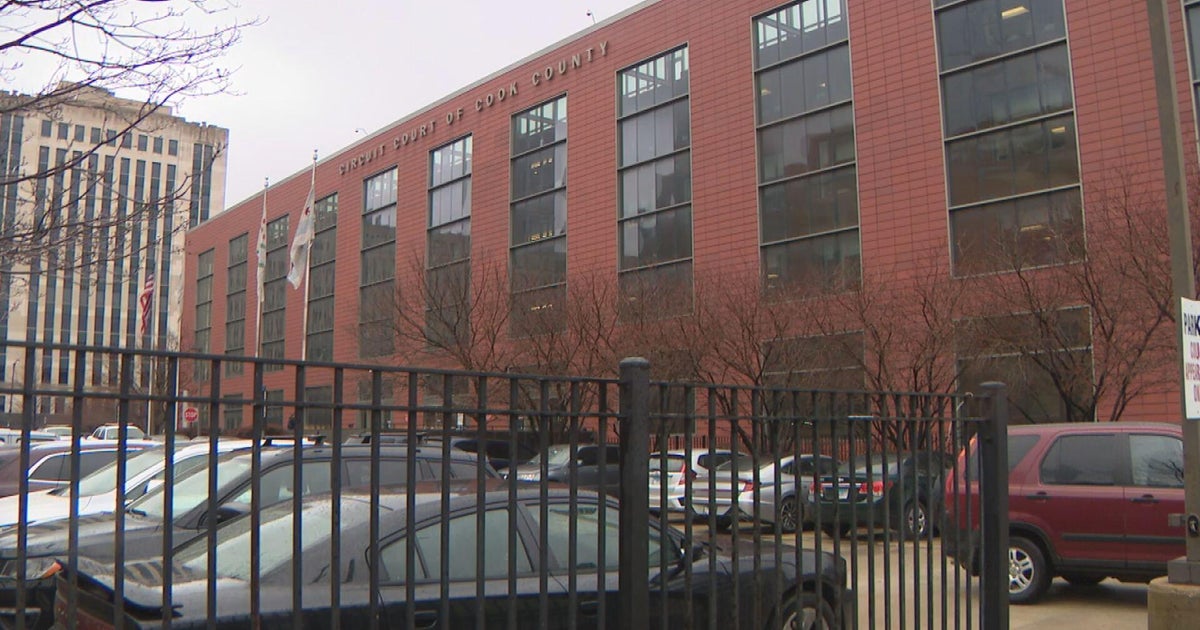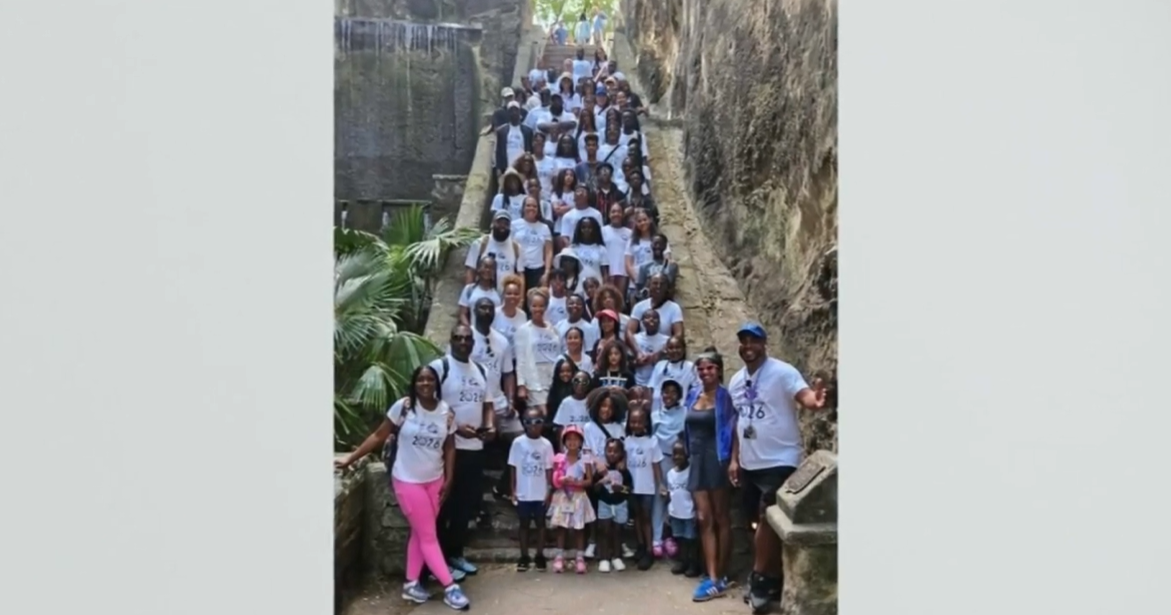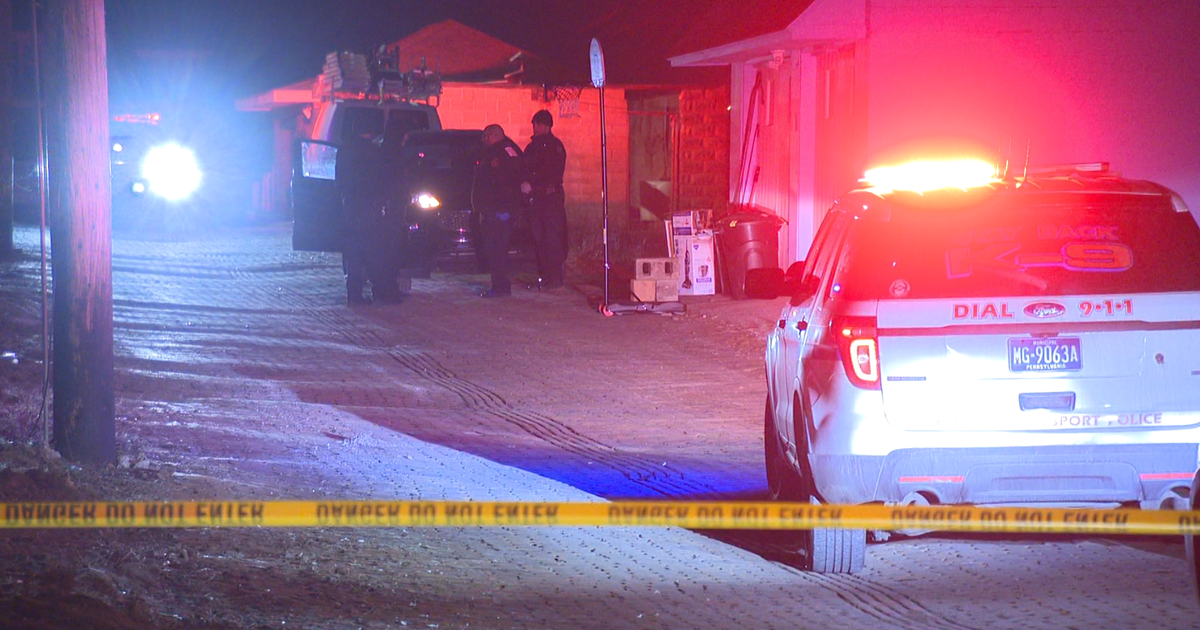Survivors Angry Over 'Pain' Depiction
MIAMI (AP) — The real-life murder, torture and kidnapping case from South Florida that's behind the coming movie "Pain & Gain" indeed reads like a script — just not a funny one.
The fact that the film, starring Mark Wahlberg and Dwayne "The Rock" Johnson, is an action-comedy has angered survivors of the Sun Gym gang's crimes and those who investigated them nearly two decades ago.
"You are talking about real people. And in this particular case, especially when you're talking about the murder victims, these were innocent victims," retired Miami-Dade Police Sgt. Felix Jimenez said.
Zsuzsanna Griga told The Miami Herald that the movie's depiction of the gang as sympathetic bumblers just trying to get ahead is "ridiculous." Her brother and his girlfriend were murdered and dismembered by them.
"It's horrible what happened to them," said Griga, who lives in Hungary. She could not be reached by The Associated Press. "I don't want the American public to be sympathetic to the killers," she said.
The Paramount film, which opens April 26 and is directed by Michael Bay of "Transformers" and "Armageddon" fame, is adapted from a series of Miami New Times articles about a group of 1990s bodybuilders who hatched a brutal get-rich-quick kidnapping scheme that eventually escalated to murder. Paramount declined comment.
The New Times series told of mastermind Daniel Lugo, played by Wahlberg, his sadistic muscleman Noel Doorbal, played by Anthony Mackie, and Jorge Delgado, who is not portrayed in the movie, who were denizens of the Sun Gym, which was known for its hardcore bodybuilders. Johnson plays Paul Doyle, a fictional member of the crew.
Lugo, a charming conman who had served prison time for defrauding seniors, was the gym's manager. He hired Doorbal, a gym rat and steroids abuser, as a part-time employee and cut him in on a lucrative Medicare fraud scheme. Delgado, one of Lugo's clients at the gym, had once worked for Marc Schiller, a wealthy Miami businessman whom they targeted for kidnapping.
They attempted to abduct Schiller about half a dozen times, once disguised as ninjas (which the movie pokes fun at). They finally succeed, snatching Schiller in 1994 outside his deli. They kept him at Delgado's warehouse for a month and tortured him with lighters, a Taser, sleep deprivation and water boarding until he had his wife and children move to Colombia and he signed over his home, a life insurance policy and millions of dollars in investments. Schiller, who later pled guilty to Medicare fraud, said he had earned the stolen money honestly through an accounting practice and other investments and businesses.
The gang moved into his house and then tried to kill him. They forced him to get drunk, put him in a car and set it on fire. They then crashed it into a utility pole. When he staggered out, they ran him over with another car — twice. Somehow, he survived.
But Schiller, then 34, didn't call police. From the hospital he hired a private investigator, Ed Du Bois, to get his money back. Only after that failed four months later did he send Du Bois to the Miami-Dade police with the reams of evidence he had collected. Nothing happened.
Du Bois, who makes a cameo as a detective in the movie, gave the film company and director credit for making an adaption of the true story.
"If you read the original article, the basic elements are in the movie but there is a lot of Hollywood in that movie," he said.
In the movie, Schiller is renamed "Victor Kershaw." Played by Tony Shalhoub, who starred in TV's "Monk," Kershaw is described by Wahlberg's character as a criminal who deserves to have bad things happen to him. Surrounded by women in skimpy bikinis, he's seen in a pool while smoking a cigar.
That image, Schiller said, couldn't be further from the truth.
"It's not who I am," said Schiller, who now works in an accounting office. He says he was married and a homebody at the time of the kidnapping and never smoked cigars. "It's supposed to represent me but it doesn't."
The movie also gives some details about at least one killing that happened after Schiller's escape, although it is unclear how that is done. Paramount rejected an AP request to view the film in advance.
In reality, the gang targeted Frank Griga, a Hungarian immigrant who had gotten rich running a phone sex operation — Doorbal's girlfriend knew him from the strip club where she worked. Under the pretense of proposing a business deal, the gang invited Griga and his girlfriend, Krisztina Furton, to dinner with the intent to kidnap them.
But Griga fought back and was beaten to death. Furton was killed with an overdose of horse tranquilizer. Their bodies were taken to the same warehouse where Schiller had been held and dismembered. The bodies were dumped and the parts were put into drums and buckets and then discarded around South Florida. (One movie trailer shows a small dog carrying a severed toe in its mouth around a posh home).
When Griga and Furton were reported missing, the investigation quickly focused on the Sun Gym gang. Delgado became a prosecution witness against Lugo and Doorbal, who were convicted of murder in 1998 and sentenced to death. They are awaiting execution. Delgado got 15 years. Others were also convicted for their roles.
Jimenez, the detective, was often assigned to show actors — including Kevin Bacon — what it was like to ride in a squad car. As they cruised, he would tell them about the Sun Gym case.
"Their response was: 'I know it's true. But you can't even make a movie out of it because nobody will believe that it was true.'"
(© Copyright 2013 The Associated Press. All Rights Reserved. This material may not be published, broadcast, rewritten or redistributed.)







